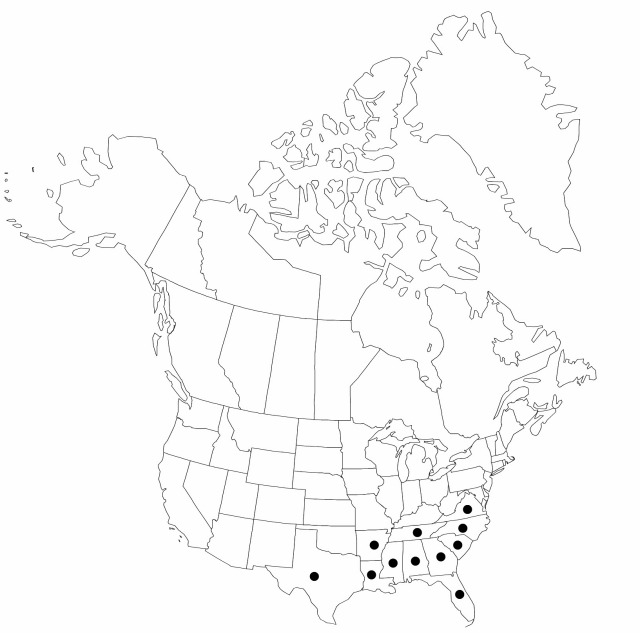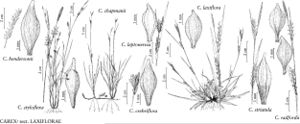Difference between revisions of "Carex crebriflora"
Rhodora 24: 197. 1922.
FNA>Volume Importer |
imported>Volume Importer |
||
| Line 6: | Line 6: | ||
|place=24: 197. 1922 | |place=24: 197. 1922 | ||
|year=1922 | |year=1922 | ||
| + | }} | ||
| + | |special_status={{Treatment/ID/Special_status | ||
| + | |code=F | ||
| + | |label=Illustrated | ||
| + | }}{{Treatment/ID/Special_status | ||
| + | |code=E | ||
| + | |label=Endemic | ||
}} | }} | ||
|basionyms= | |basionyms= | ||
| Line 44: | Line 51: | ||
|publication title=Rhodora | |publication title=Rhodora | ||
|publication year=1922 | |publication year=1922 | ||
| − | |special status= | + | |special status=Illustrated;Endemic |
| − | |source xml=https:// | + | |source xml=https://bibilujan@bitbucket.org/aafc-mbb/fna-data-curation.git/src/bb6b7e3a7de7d3b7888a1ad48c7fd8f5c722d8d6/coarse_grained_fna_xml/V23/V23_796.xml |
|genus=Carex | |genus=Carex | ||
|section=Carex sect. Laxiflorae | |section=Carex sect. Laxiflorae | ||
Revision as of 21:37, 27 May 2020
Culms densely or loosely tufted, lateral or central, erect or ascending, 17–70 cm × 1–1.5 mm. Leaves: basal sheaths light brown to brown; sheaths green or yellowish green, 2–60 mm; blades ascending, green or yellowish green, midrib developed abaxially, 2 lateral veins developed adaxially, flat or slightly corrugated, 4–52 cm × 0.2–10 mm, blades of overwintering leaves smooth. Inflorescences: peduncles of proximal spikes 0–8.5 cm, arising in distal 1/2 of culm; peduncles of terminal spike 0–0.2 cm; bracts 1.3–14 cm × 1–4 mm, blade of distal lateral spike linear, narrower than spikes, widest bract blade of distalmost lateral spike 0.5–3.4 mm wide. Spikes (3–)4 per culm; lateral spikes 6–24 × 3.5–5 mm, ensheathed by distal bract blades, distal lateral spikes overlapping; terminal spike linear, 11–22 × 0.8–1.8 mm, exceeded by or subequal to distal lateral spike. Stamimate scales linear-ovate, 2.8–3.8 × 1.5–2.2 mm, margins hyaline, apex acute. Pistillate scales 2–2.6 × 1–1.5 mm, apex cuspidate to obtuse. Anthers 1.8–2 mm. Perigynia 4–20 per spike, overlapping, ratio of longer lateral spike length to perigynia number 0.8–1.7, occasionally perigynia of proximal spike scattered, ascending, finely, conspicuously (22–)25–32-veined, elliptic-ovate, 3–5 × 1.2–2 mm, 1.9–2.3 times as long as achene bodies; beak straight or slightly curved, 0.5–1.7 mm. Achenes obovoid, 2.8–4.4 × 1–1.8 mm. 2n = 42.
Phenology: Fruiting spring.
Habitat: Wet, alluvial soils, mostly sandy, under deciduous or mixed deciduous-evergreen forests
Elevation: 0–100 m
Distribution

Ala., Ark., Fla., Ga., La., Miss., N.C., S.C., Tenn., Tex., Va.
Discussion
Selected References
None.
